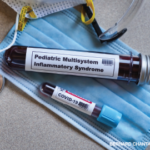 As experts who diagnose, treat and monitor complications of multisystem autoimmune diseases, rheumatologists are uniquely positioned to play a crucial role in caring and advocating for patients with vasculitis, according to Tanaz Kermani, MD, MS, a rheumatologist and director of the Vasculitis Program at UCLA in Los Angeles.
As experts who diagnose, treat and monitor complications of multisystem autoimmune diseases, rheumatologists are uniquely positioned to play a crucial role in caring and advocating for patients with vasculitis, according to Tanaz Kermani, MD, MS, a rheumatologist and director of the Vasculitis Program at UCLA in Los Angeles.
Vasculitis is a term for a group of rare diseases that include blood vessel inflammation.1 It “encompasses a number of rare conditions few physicians and specialists recognize—rheumatologists [among] them. These rapidly progressive conditions require prompt diagnosis and treatment to prevent devastating consequences for our patients,” Dr. Kermani says.
She notes that because vasculitis patients often have involvement of multiple organ systems, it’s imperative a team of doctors work together closely as advocates for these patients.
Here are several important ways Dr. Kermani suggests rheumatologists advocate for vasculitis patients.
1. Raise Awareness of Vasculitis Conditions
The conditions and issues faced by patients with vasculitis may not be clearly understood by physicians outside rheumatology, she cautions. Rheumatologists play an important role in the early detection of vasculitis and in ensuring appropriate work-up.
“Prompt diagnosis and treatment [are] the cornerstone to minimizing damage from vasculitis,” Dr. Kermani stresses.
Vasculitis symptoms can include vague symptoms, such as fatigue, fevers, weight loss, muscle pain, shortness of breath and cough; numbness or weakness in a hand or foot; and red skin spots, lumps or sores. The disease can also show no initial symptoms at all. Additionally, vasculitis can preferentially affect certain age groups. Examples: Kawasaki disease affects only children. IgA vasculitis (Henoch-Schönlein) is more common in children; meanwhile giant cell arteritis only affects adults over the age of 50.1
“The most important thing we can do is raise awareness of these signs and symptoms with other health professionals so they consider a vasculitis diagnosis and make a referral early,” Dr. Kermani says.
2. Support Vasculitis Patients & Families
By providing patients and their families with information when needed and directing them to reliable resources for support, rheumatologists can help patients feel less isolated, Dr. Kermani says. She directs her patients and their family members to the Vasculitis Foundation.
3. Influence Other Healthcare Professionals in a Meaningful Way
The ultimate goal from the advocacy perspective is to ensure better recognition of these conditions to enable earlier diagnosis and treatment. One way Dr. Kermani says rheumatologists can do this is by serving as the point person on a team of specialists caring for patients with these multisystem conditions. She says, “Referral to and collaborating with other specialists is very important to ensure the best outcomes for our vasculitis patients.”
If possible, Dr. Kermani says referring patients to an academic center with expertise in the care of vasculitis can allow patients access to opportunities to participate in research or new therapies. She notes you don’t have to be at an academic center to educate colleagues and other health professionals or to learn. She says, “An open dialogue and discussion with other members of the patient care team is an enriching experience and broadens our perspective.”
4. Stay Current with Treatment Options
For any rheumatic disease, including vasculitis, keeping up with the latest clinical trials research can help in tailoring the appropriate treatment plan for the patient, Dr. Kermani shares. Although good clinical trial data exist for some forms of vasculitis, such as anti-neutrophil cytoplasmic antibody (ANCA)-associated vasculitis, further research is needed for many.
“Our efforts can [affect] patient lives in a profound way,” Dr. Kermani stresses. “Recognizing our limitations and reaching out to colleagues when we are facing challenges to discuss things is also a very important way we advocate for our patients.”
Carina Stanton is a freelance science journalist in Denver.
Reference
- The American College of Rheumatology. Diseases & conditions: Vasculitis. 2017.
Stay Tuned
The ACR is currently developing guidelines for many forms of vasculitis. Learn more.



